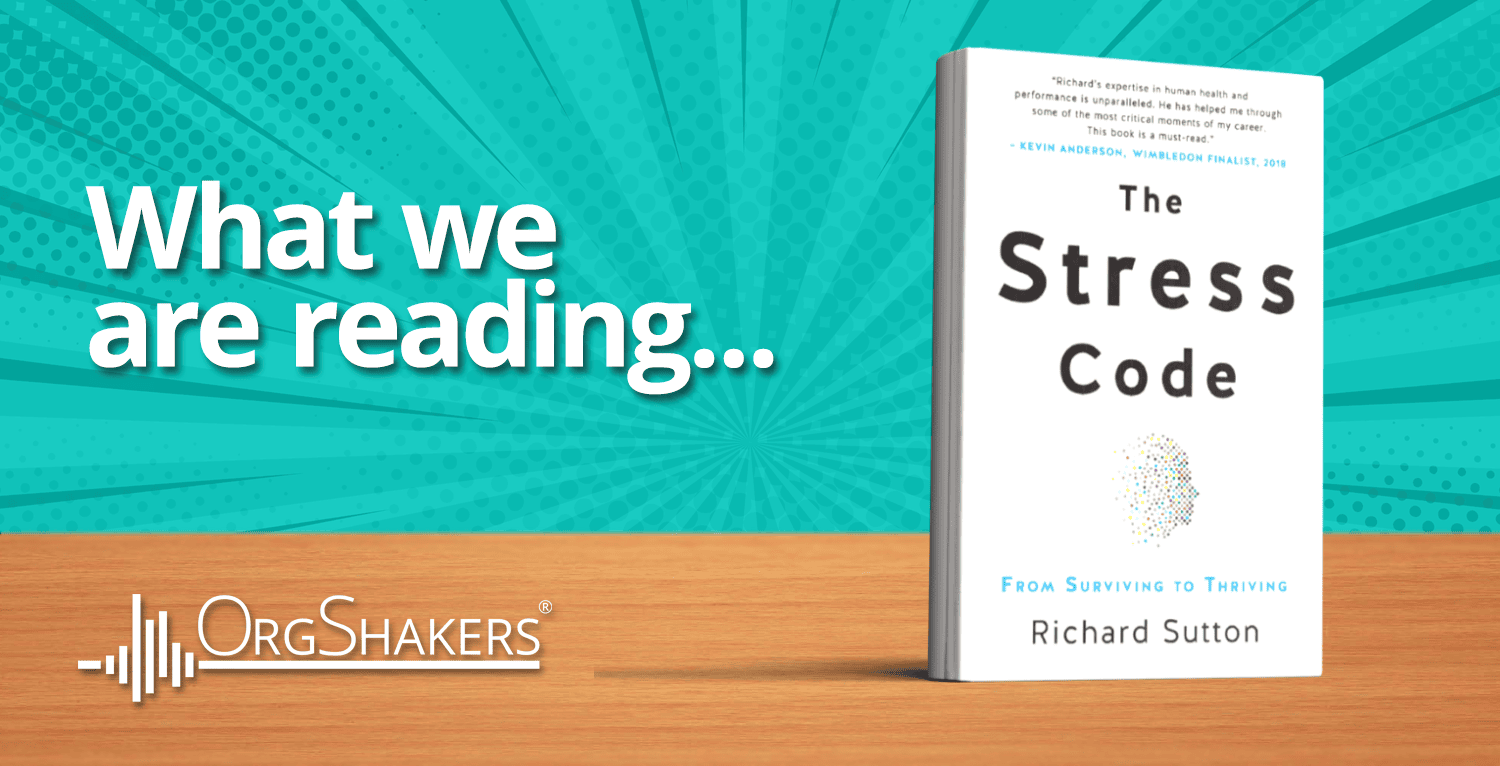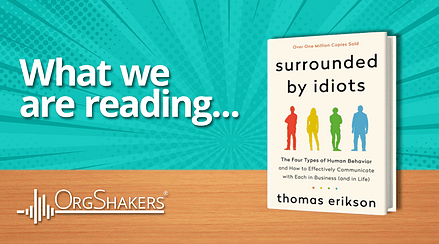Menu

What We’re Reading: The Stress Code by Richard Sutton
It’s Stress Awareness Week, and this played a big role in helping us to decide what our monthly read would be.
After scouring through multiple great choices, we ultimately landed on Richard Sutton’s The Stress Code: From Surviving to Thriving, and knew that this was the book we had been looking for.
Richard Sutton is a health and performance consultant, as well as an expert in resilience, human performance, and stress management. His work has seen him work with elite athletes and Olympic trams – as well as corporate leaders – where he advised on pain management, adaptation and optimal performance. All of this experience teed him up perfectly to write a book about harnessing the power of stress without letting it take an unhealthy toll.
In his book, Richard argues that stress is a two-faced phenomenon: in its chronic form, it wreaks havoc on health and wellbeing, yet in its acute, well-managed form, it can become a catalyst for growth, creativity and peak performance. The book is therefore framed as a resilience roadmap that encourage adaptation rather than all-out avoidance.
The Stress Code begins with foundational ideas: What is stress (its evolutionary roots)? How does stress affect our body systems (immune, hormonal, neural) in both short and long exposure? How does chronic stress destabilize cellular integrity and increase risk of disease? All of these question are explored in depth, as well as the common stress triggers that can kickstart the vicious cycle of negative stress.
After introducing the problem, he then begins to present his solution. Richard proposes a ‘resilience model’ which he has designed to optimize performance and buffer stress. With this framework, he offers actionable strategies, such as techniques to calm the nervous system, mindset shifts and behavioural architecture, to ensure that stress does not spiral into the negative and is instead harnessed for good.
The book also places an emphasis on personalization. Since people differ in their stress sensitivity (even genetically), one must calibrate one’s mix of stress exposure, rest, and coping techniques.
Richard then concludes with a synthesis of his ideas: thriving is not about eliminating stress, but managing one’s ‘arousal–regeneration balance’. It is about designing a life where stress pulses (such as growth and challenge) are matched by regenerative practices (like recovery, rest), underpinned by purpose, structure, and psychological safety.
This science-infused yet practical guide transforms the prevailing narrative of stress from enemy to evolutionary ally, and as a HR professional, we very much recommend getting your hands on a copy. If you would like to purchase a copy of The Stress Code, you can do so here in the UK and here in the US.
And if you have any pressing questions about how you can begin to practically manage stress and build resilience in your workforces, please do get in touch with us today!



